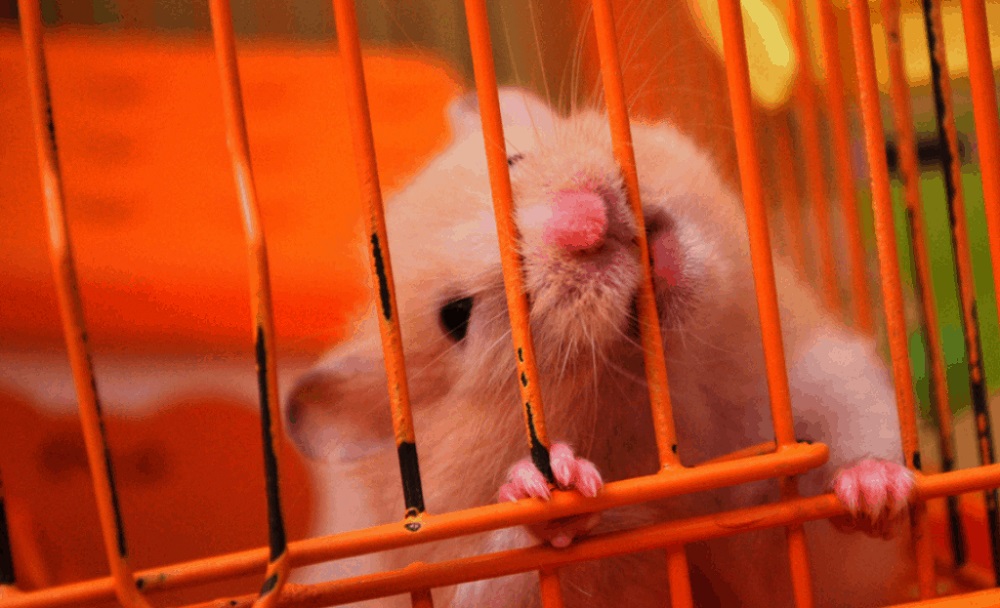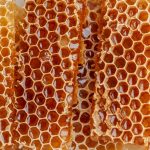When it comes to hamsters, they have really become popular pets in current times.
Many people, especially children, now like to have them as pets and take care of them as pets. Whenever a hamster is caged up, the owner has to provide its food.
Now, a hamster’s diet consists of seeds or pellets mixed with water. Also, the cage must have some bedding material for the hamster to nest in.
Usually, the bedding material consists of a shredded paper. Now, whenever a hamster bites its cage at night, it’s usually not because it has a craving for food.
The reason behind biting the cage at night is because of boredom.
When hamsters are kept in cages, they are usually given something to keep them busy. The hamsters are usually given balls to play with.
Also, when the hamsters are hungry in the night they can chew on the toys given to them by the owners instead of biting on the bars of the cages where they are kept.
So, before assuming that the pet is trying to eat out of the bars of the cages in which they are kept, one should check whether or not the pet has any toys to play with or whether it has anything to chew on.
Another reason why hamsters bite their cages is because they feel anxious and stressed.
Let’s dive in.
Why Is Hamster Biting Cage At Night?
Contents
Hamsters are nocturnal animals, which means they are active at night and sleep during the day.
Hamsters also chew on everything. Therefore, it’s normal for a hamster to chew on the cage at night while they’re awake.
They usually chew on the bars of the cage because there’s nothing else to chew on.
If they chew on their food bowl, it defeats the purpose of having a hamster because they can then eat the food that they chew off.
While hamster chewing is a normal behavior, there are ways to stop it. You can place toys in the cage so hamsters have something to play with at night.
You can also cover the cage at night so they can’t see the cage bars.
However, the best way to prevent hamster chewing is by not letting them have access to their cage at night.
How To Stop Hamster Biting Cage at Night
Stabilize the Room’s Temperature
Hamsters like to stay in a cage during the night.
However, if it’s too hot or too cold at night, the hamster may bite its cage. This is because the hamster feels uncomfortable and would rather not stay in the cage.
To avoid this, it’s essential for owners to adjust the temperature in their hamster’s cage at night.
To do this, owners should move their hamster’s cage away from windows or air conditioners, which create drafts and make the room colder at night.
Additionally, owners should shut their windows at night to keep the hamster’s cage warmer.
Let Hamster Roam Around in a Hamster Ball
Hamsters need exercise to stay healthy.
Hamster balls are exercise machines for hamsters. However, many people aren’t sure whether to give their hamsters hamster balls or not.
Some believe that hamsters don’t like hamster balls, so they may choose to keep them caged at night. However, this isn’t true at all.
Hamsters love hamster balls. In fact, most hamsters quickly become bored in their cages and beg their owners to let them out to play in their hamster balls.
Hamster balls also prevent hamsters from biting their cages at night.
Hamsters are nocturnal animals, so they become active at night.
However, hamsters also bite their cages at night trying to find a way out. This results in bloody wounds and sore paws in the morning.
Hamster balls solve the problem by letting hamsters freely run around in their cages at night without biting their cages.
Hamster balls also let hamsters play and exercise during the day, which keeps them happy and healthy.
Set up a Hamster Wheel
Hamsters are cute little animals that are fun to watch, but they can be a problem when they start biting your cage at night.
Many people keep a hamster in a cage at night because it protects the hamster from danger. However, when a hamster bites the cage at night, it can be painful and annoying.
Luckily, there is a simple solution to this problem: a hamster wheel. A hamster wheel will help keep your hamster entertained at night by allowing it to spin around.
This will tire it out and stop it from biting the cage at night.
Invest in Chew Treats
Your hamster needs exercise during the day, but at night, it might need something to chew on.
Hamsters often chew on cage wires at night and damage them, so it’s important to prevent them from doing this.
Chew treats are a great option because they help your hamster stay busy during the night, without harming its cage.
Plus, chewing treats are a healthy alternative to hamster treats that have a lot of sugar.
Finally, chewing treats are chewable and come in a variety of shapes and sizes so you can get your hamster’s attention and keep its teeth clean. Chew treats are a great choice for your hamster.
Also Read: How Do Hamsters Know To Run On The Wheel
Conclusion
When a hamster begins to act strangely, it’s a sign that something is wrong with it. One of the most common signs of a sick or injured animal is when it begins to eat its own feces.
If your hamster does this, it could mean that it has an intestinal blockage or a parasitic infection that is making it sick.
When hamsters have intestinal blockages, they often die because the blockage causes them to stop eating and die of starvation as a result.
To prevent this from happening to your hamster, you should examine your pet
The last thing you want to do if you have a sick or injured pet is leave it alone in its cage so that it can die a slow and painful death from starvation and dehydration.
You’ll be halfway to a decent vet bill if you can identify the illness yourself, but bear in mind that some illnesses are incurable even with treatment.
At this stage, it is critical to monitor how the animal is behaving to make sure it is receiving adequate nutrition.
During this time, be patient as recovery can take anywhere from several days to several weeks depending on the severity of the injury.






